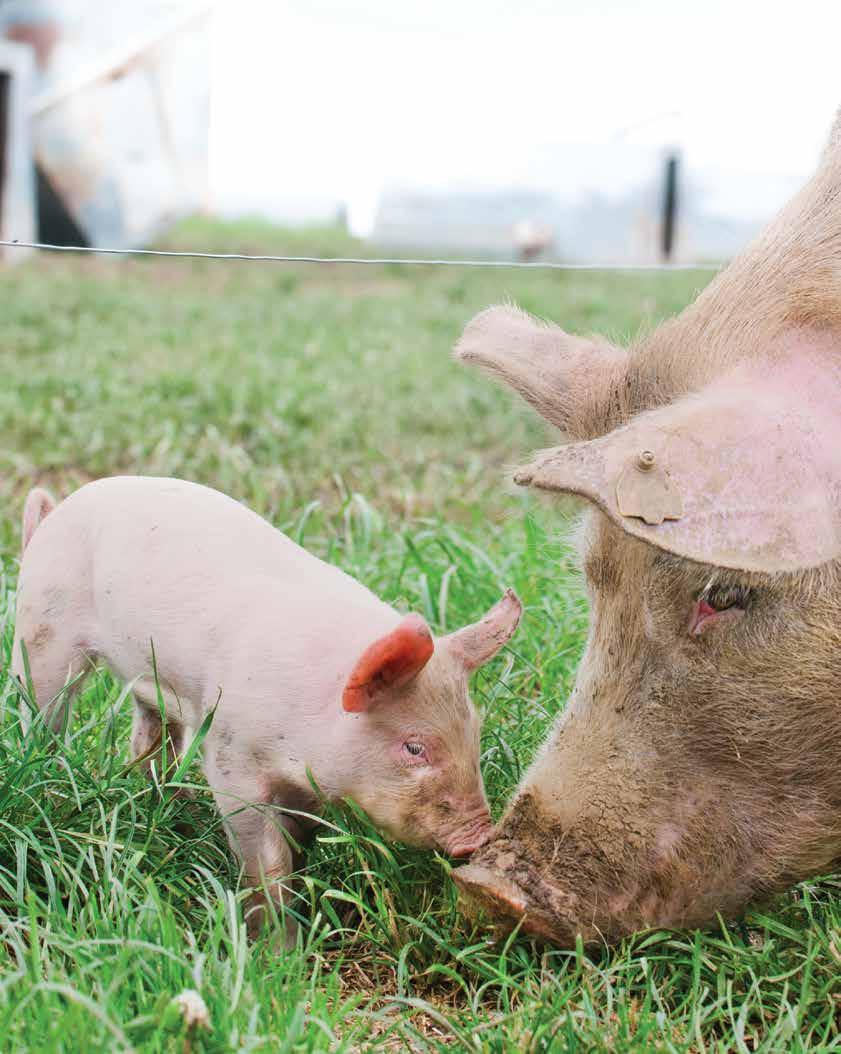
1 minute read
Reducing farm animal suffering
A mother pig forages with her week-old piglet at Becker Lane Organic Farm in Dyersville, Iowa, where nursing babies live alongside their moms in farrowing huts. At a typical factory farm, breeding sows suffer virtually lifelong confinement in crates so small they can’t even turn around, and their piglets are taken away soon after birth.
Industrial animal agriculture is one of the biggest causes of animal suffering. More than 80 billion land animals are raised for food every year globally. Of those animals, more than 7 billion egg-laying hens and an estimated 75 million breeding sows suffer in extreme confinement, and in the U.S. alone, there are close to 300 million mother pigs, egg-laying hens and calves raised for veal in such conditions. We’re fighting to abolish cruel confinement of farm animals and reduce public demand for animal products by promoting plant-based eating.
- In 2019, we reached our goal of making the entire West Coast egg industry cagefree with successful campaigns to ban the sale and production of eggs from caged hens in Oregon and Washington (we passed California’s Prop 12 in 2018, which started the trend). We also won in Michigan, which became the first state in the Midwest to go cage-free.
- We blocked multiple state-level bills aimed at undermining farm animal protections, including attempts to weaken protections for whistleblowers who report animal cruelty.
- Our litigation team secured major victories when the Supreme Court rejected challenges to landmark laws we helped pass in California and Massachusetts that banned the cruel confinement of egg-laying hens, mother pigs and baby veal calves— as well as sales of products from animals cruelly confined—and turned away a challenge to California’s foie gras ban.

- We persuaded Denny’s and packaged food giant Conagra Brands to adopt humane, industry-leading policies in their chicken supply chains.
- We supported a successful ban on the sale of foie gras in New York City.
- Through our Forward Food program, we convinced some 525 colleges, K-12 schools, hospitals, and others to serve less meat and more plant-based meals in their cafeterias, and we trained more than 10,000 food service professionals how to cook plant-based meals.







